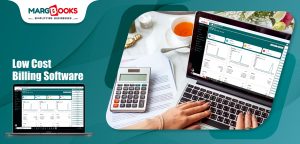In today’s competitive legal landscape, managing billing processes efficiently is vital for law firms of all sizes. With the increasing complexity of client cases, the need for transparency, accuracy, and speed in billing has never been greater. This is where Legal Billing Software comes into play. It is not just a tool but an essential solution to streamline operations and improve overall client satisfaction.
Whether you are a solo practitioner or part of a large firm, embracing this technology can significantly impact your firm’s productivity and profitability. Let’s dive deeper into why every law firm should invest in Legal Billing Software and how it stacks up against other systems like pharmacy software, cloud-based FMCG billing software, and financial accounting software.
What is Legal Billing Software?
Legal Billing Software is a specialized tool designed to simplify and automate the billing processes in a law firm. Unlike general-purpose software, it caters specifically to the unique needs of legal professionals, such as tracking billable hours, generating detailed invoices, and managing client trust accounts.
Modern legal billing solutions often come with features like:
- Time tracking integrated with case management.
- Automated invoice generation.
- Payment tracking and reminders.
- Compliance with legal regulations and standards.
- Cloud-based accessibility for remote work.
Why is Legal Billing Software Essential for Law Firms?
Law firms handle a variety of tasks daily, from consulting clients to preparing legal documentation. Managing these tasks while ensuring accurate billing can be daunting. Here are several reasons why Legal Billing Software is indispensable:
1. Improved Efficiency
Manually managing invoices and tracking billable hours can be time-consuming and prone to errors. Legal Billing Software automates these processes, freeing up valuable time for lawyers to focus on their core responsibilities.
2. Enhanced Accuracy
Billing errors can harm a firm’s reputation and client relationships. Legal Billing Software minimizes errors by providing accurate calculations, ensuring every billable minute is accounted for.
3. Transparency for Clients
Detailed and transparent invoices help clients understand the breakdown of charges, building trust and reducing disputes over billing.
4. Compliance with Legal Standards
Many jurisdictions have specific rules regarding legal billing. Legal Billing Software ensures compliance by integrating regulatory requirements into the billing process.
5. Cloud Accessibility
Modern tools often come as cloud-based solutions, allowing lawyers to access billing data from anywhere. This feature is particularly useful for firms with remote teams or multiple offices.
How Does Legal Billing Software Compare to Other Billing Tools?
Pharmacy Software
While pharmacy software is designed to handle the inventory and billing of pharmaceutical products, it lacks the specific functionalities required by law firms. Features like trust account management, legal-specific time tracking, and case-based billing are absent in pharmacy software.
Cloud-Based FMCG Billing Software
Similarly, cloud-based FMCG billing software caters to the fast-moving consumer goods sector. While it excels in managing high-volume transactions and inventory, it falls short in addressing the unique needs of a legal environment, such as tracking billable hours and managing retainer accounts.
Financial Accounting Software
Financial accounting software focuses on general accounting needs like bookkeeping, tax filing, and financial reporting. While it is an excellent tool for managing a firm’s overall finances, it does not offer the specialized features required for legal billing.
In contrast, Legal Billing Software is tailor-made for the legal industry, offering features that directly impact a law firm’s day-to-day operations.
Key Features to Look for in Legal Billing Software
When choosing a Legal Billing Software for your firm, consider the following features:
- Time Tracking: Seamlessly track billable hours with timers that can be linked to specific cases.
- Automated Invoicing: Generate professional invoices automatically, saving time and ensuring accuracy.
- Trust Accounting: Manage client trust funds in compliance with legal standards.
- Expense Management: Record and allocate case-related expenses efficiently.
- Payment Integration: Accept online payments and provide clients with multiple payment options.
- Cloud-Based Access: Ensure secure and remote access to your billing data from any device.
Benefits of Adopting Legal Billing Software
1. Increased Revenue
Accurate time tracking and billing reduce revenue leakage, ensuring that your firm gets paid for every minute of work.
2. Better Client Relationships
Transparent billing builds trust and enhances client satisfaction, leading to better client retention.
3. Simplified Financial Management
Integrating Legal Billing Software with financial accounting software provides a complete view of your firm’s financial health, simplifying bookkeeping and tax reporting.
4. Scalability
As your law firm grows, Legal Billing Software can scale to accommodate more clients, cases, and team members.
5. Competitive Edge
In a highly competitive industry, leveraging technology like Legal Billing Software can set your firm apart, showcasing your commitment to professionalism and efficiency.
Steps to Implement Legal Billing Software in Your Law Firm
- Assess Your Needs: Identify your firm’s specific billing challenges and needs.
- Research Options: Compare different Legal Billing Software solutions based on features, pricing, and reviews.
- Trial Period: Opt for a free trial to evaluate the software’s ease of use and compatibility with your firm.
- Train Your Team: Provide adequate training to ensure a smooth transition.
- Monitor and Optimize: Regularly review the software’s performance and make adjustments as needed.
Conclusion
In today’s fast-paced legal environment, investing in Legal Billing Software is no longer optional but essential for law firms aiming to stay competitive. It not only streamlines billing processes but also enhances client satisfaction, ensures compliance, and boosts profitability. While tools like pharmacy software, cloud-based FMCG billing software, and financial accounting software have their place in other industries, they cannot match the tailored functionalities of Legal Billing Software for the legal domain.
By choosing the right software and implementing it effectively, your law firm can enjoy improved efficiency, increased revenue, and better client relationships. Don’t wait—take the leap into the future of legal billing today!




